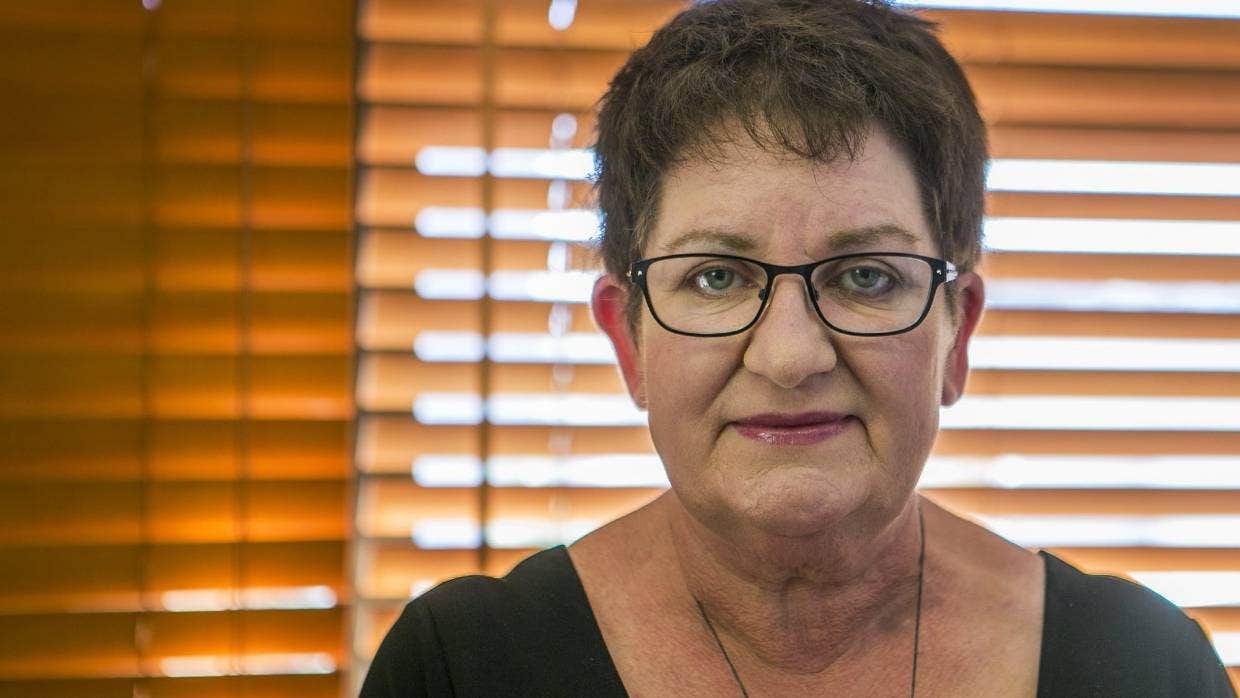The Dunedin woman, the Aussie doctor and the 1000 Kiwis saved from death
'Think global, act local, treat local'
I found online the best comedy/drama to watch. You may have heard of it.
It is the called the Dunedin City Council, and inparticular what unfolded at the Infrastructure Services committee on Valentine’s Day.
You can watch it below.
Skip to about two hours in, and grab some popcorn. One of the key phrases belongs to chair Jim O’Malley who noted the ‘‘division and split’’ of council while they were debating the makeover of George St.
What will be interesting is whether there is political appetite from those who lost the vote 9-8 to take their opposition further.
If there is, there runs the risk of a public backlash over a ‘my way or the highway’ attitude. The mayor has political capital, and he achieved his election campaign of getting the review on George St. That could be eroded if he sidesteps the latest decision and advances a motion to council. That was likely to succeed given he has the numbers (with the two mana whenua votes on the committee and not council).
But it would come at what cost, politically and financially?
I reached out to the mayor, and I’m still waiting.
I’m eager to know your thoughts.
Last week I received an email tip which included the words ‘good news’.
I was sceptical. I blame 17 years in journalism. But I was also wrong.
The tip was from Hazel Heal, who I’ve written a few stories about over the years.
She is a remarkable person, a long-time supporter of Arthur Taylor and a fierce advocate for the Hepatitis C community, which is shrinking in size thanks to her efforts.
This is from Whatu Ora: Hepatitis C is the leading cause of liver transplantation and the second leading cause of liver cancer in New Zealand. It is estimated around 1,000 people currently contract the virus every year, and more than 200 die from it.
A few years ago Heal was facing that same situation, facing a transplant or early death - a prognosis she discovered only weeks from her first-year law exams.
While treatment existed it was expensive, and not funded - at the time - by Pharmac, the Crown entity involved in sourcing subsidised medicines and pharmaceutical products.
If you want to know more about Pharmac read this, it contains the line: New Zealand spends less per capita on medicines than other comparable countries, but has worse access to the latest medicines.
I hadn’t given Pharmac much thought over the years, but in recent years I know of more people getting sick. It is a hellish situation. Not having access to medications which could save your life, or financially impact your family as you source expensive medications.
That’s what faced Hazel in late 2015.
As an aside, she did not know how long she had lived with Hepatitis C, but it was likely her entire adult life.
She likened the stigma of being told had it to that of someone told that they had AIDs, and her answer to people how she contracted it was always the same: ‘‘by accident, like all of us’’.
Faced with having to sell the family home to fund the $200,000 required, she heard from her sister about a doctor who established a buyers club, in Australia in 2014.
With nothing to lose she contacted the doctor behind the buyers club, Dr James Freeman.
‘‘Once I got the meds I realised everyone else should know about it.’’ Hazel, who paid $3800 at the time for her life-saving medication, said.
As a result of going public, the lives of hundreds of New Zealanders were saved. That included not only Hazel, but high profile Dunedin musician: Martin Phillipps.
The frontman’s health battles are well documented in the excellent documentary: The Triumph & Tragedy of Martin Phillipps.
But what wasn’t documented was the role Dr Freeman played, giving Phillipps access to free medication that would normally cost $250,000.
‘‘He did it as a favour to me,’’ Hazel said.
Like Hazel, the drugs cured him of Hepatitis C, and saved his life.
Dr Freeman wasn’t done.
If you want to know a bit more about Dr Freeman and his work, please watch this video and I urge you to read the comments (never thought I’d say that, but they are heartfelt from those he helped save).
I had a brief chat with him on Tuesday, and due to having to go to court I flicked him an email.
His replies are to the point.
Asked how many patients he has helped in New Zealand he replied 1000 (that’s about the population of Waikouaiti), while helping another 5000 in Australia, and more than 50,000 worldwide.
Those medications were for people suffering the likes of cirrhosis, liver failure and cystic fibrosis, who were able to access cheap generic drugs.
Dr Freeman wouldn’t talk about specific patients, due to medical confidentialty, but had treated people from all walks of life.
The not-for-profit not-for-loss buyers club helped patients, who have a legal right to import medication for their own use, source those medications.
It meant that many treatments cost just a few thousands dollars, compared to the around six figure sums needed for treatment in New Zealand.
It crucially provided treatment to people who needed it - and could afford to pay less.
The beauty of the club meant others could be treated for free using the margins from the club.
‘‘You would be right in suggesting our Buyer's Club is think global, act local, treat local,’’ Dr Freeman said.
That simple method for treating more people was ‘‘together we have better bargaining power’’.
He put it even more simply: ‘‘NZ is a country of 5 million. Australia is 25 million. We (AUS) have more buying power, so you (NZ) should join in’’.
Hazel obviously knows firsthand the impact of bargaining power.
While her medication originally cost $3800, it was now about $800 for the rest of the world, ‘‘but we have it free now’’. You can read about that here.
The buyers club model was expanded for drugs needed for other diseases. As I mentioned before I knew a few people that had gotten sick, and a couple I had written stories about. Hazel emailed me to say that those drugs they needed could be sourced for a fraction of the price, and she was happy to help them.
‘‘If it is a pill we can get anything basically.’’
So how does it work if a particular medication is not readily available in New Zealand?
Well, says Hazel, you need to be backed by a clinician who will write a prescription (As an aside: Dr Freeman couldn’t write a prescription for a New Zealander, but could for other patients in other countries).
The medications sourced were licensed generics, essentially a generic drug is a copy of a brand-name drug that is developed and made by a company other than the company that makes the brand-name drug.
A crucial person in New Zealand was Professor Ed Gane, who established the country’s liver transplant unit and pioneered global drug trials that worked out a cure for hepatitis C.
You can read more about him here. And just a quick side note: all three Gane, Heal and Freeman are Pharmac model supporters, ‘‘we just like helping here and now’’, she said.
Basically Prof Gane treats all the sickest hepatitis patients in the country, the ones that can’t be treated with Maviret - a drug used to treat Hepatitis C.
As an aside, Hazel has been a ministerially appointed consumer advisor to Pharmac, which included advocating for the Maviret deal. Fantastic work, Hazel.
However, securing funding for Maviret meant possibly the end of New Zealand’s involvement with Dr Freeman.
But if course Prof Gane still had the sickest patients to treat, with both of the opinion that Maviret, if combined with (generic) Sofosbuvir, would overcome the resistance gene which those patients had.
As confusing as the world of healthcare can be, particularly the pharmaceutical industry, Hazel noted that the effective combination of Maviret and Sofosbuvir - made by two different companies - would never be sold or prescribed together.
So Dr Freeman sourced all the Sofosbuvir needed to treat every person in the country who ‘‘all thought they would die’’.
‘‘Hardly anyone knows his name,’’ she said.
What an incredible person, and thanks to Hazel for sharing.
Here is The Chills in The Great Escape.
And the end is nigh for Princes St institution, Disk Den, which now features ‘Clearance Sale. Make An Offer’ sign in its window.
I’m not sure what the future of that building is, but hope it will be tenanted not long after they close the doors on the long-running music store.
And we certainly don’t want it going the way of some of the city’s buildings, in Rattray St (pictured), Princes St and South Rd, Caversham, where buildings have been left for years, and face potential demolition.
Drake Leather had gone by Wednesday, and the splendidly named Venus Bath House won’t be far behind.
Also disappearing is the offical Twitter handle of Enterprise Dunedin, the marketing arm of the city.
You can find, um nothing, here.
Along with hundreds of others I headed to St Kilda on Saturday to watch the Black Falcons perform over Dunedin.
It was fantastic. Here are a few pix.
That visit comes after a bunch of cancellations of flights and cruise ship visits in recent weeks.
The most recent is the Queen Elizabeth, which cancelled her visit on Saturday, and of course thousands of students are coming to the city for studies.
Welcome. And it serves as a good reminder to avoid Briscoes/The Warehouse/Pak n Save for at least the next fortnight . . .
Now it is time for Tweet of the Week is this fascinating tweet



I travel between the two cities about five times a year. The observation that I would make is that in suburban Christchurch people love surrounding their property with high fences!
I love a big hedge and I cannot lie.
To end, here is a great track by Dunedin’s Neive Strang to finish. Spot the Dunedin locations. Enjoy your week.










